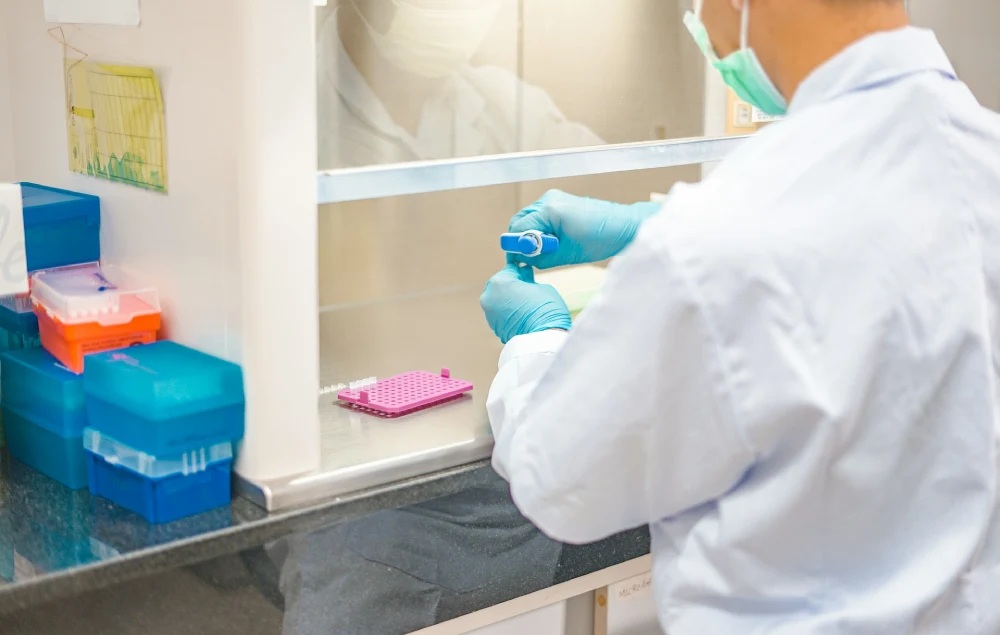The JOIST Innovation Park’s Innovation Management team, under the new GROW service of JOIST Innovation Park, recently completed the Digital Maturity Assessment (DMA) of our client companies that provide health services and products in Greece, including public and private hospitals, private clinics, health centres, health centres, welfare centres, diagnostic laboratories, microbiology laboratories, pharmaceutical companies, pharmacies, pharmacies, pharmacies and health service providers in general.
Translated with DeepL.com (free version)
Digital Maturity in the Healthcare Sector
Having collected and analysed the results of the digital maturity assessments of our sample of all the businesses and healthcare organisations in Greece, we found that this percentage is 56%. This implies that the digital maturity of healthcare consistently follows the European industry average. The percentage of the health sector in Greece is in line with that of the countries of Central-Western Europe and developed countries.
The evaluation criteria were the six digitisation pillars established by the European Commission, reflecting fundamental business areas and constituting a single tool for assessing European institutions and companies in all sectors.
6 Digital Maturity Assessment pillars
- Digital Strategy & Investments
- Digital Readiness
- Human-Centric Digitalisation
- Data Management & Security
- Interoperability & Automation
- Green Digitalisation
The Level of Innovation in the Health Sector
Introducing innovations in the health sector is crucial to improving the quality of life and the delivery of health care services. In the rapidly evolving world, developing new technologies, treatments, methods and procedures to address medical challenges more effectively and efficiently is imperative.
Monitoring and data analysis can help both early detection and disease prevention. New technologies and procedures are leading to more accurate diagnoses and treatments. At the same time, automation can reduce operating costs, production costs (including care services) and unexpected costs.
5 Most Common Health Technology Innovations Identified
- Telemedicine: Allows patients to receive care remotely, saving time and reducing costs.
- Portable Health Devices: They monitor the health of individuals in real-time, providing critical data for disease management.
- Robotic Surgery: Increases accuracy and reduces patient recovery time.
- 3D Printing: creates 3D add-on limbs prints surgical instruments as prototypes before mass production
- Artificial Intelligence: Increases the analysis conditions required to optimize decisions.
Γίνετε Κομμάτι της Καινοτομίας στην Υγεία
Do you want to share your knowledge and experience, showcase your innovations and network with leading healthcare professionals? Register as a speaker, exhibitor or sponsor at the upcoming InnoHealth Forum and help drive innovation in healthcare.
Learn more About InnoHealth Forum 2024
The Challenges of the Sector
1. Equipment and systems renewal and upgrade
62% of the businesses and organisations we have taken on use old-style equipment and outdated computer systems. In most cases, systems were found to run slowly, require frequent maintenance, and consume much energy.
2. Data Management, Organization, Analysis and Security Optimization
76% of the cases face severe problems in managing and analysing data on a large scale, with 50% not having integrated systems to ensure automated organisation and storage of information. In natural disasters, physical files cannot be used for data recovery, which only 40% of SMEs have managed to ensure by using external servers.
3. Promotion and Digital Marketing Techniques Development
Almost 100% of businesses and healthcare organisations desired to develop better marketing and promotion techniques, with most private companies having already taken their first steps on social media. Since all citizens are also potential customers, it is difficult to identify the best marketing strategy for each case under study.
4. Supply Chain Management Optimization
58.5% of all cases are companies and organisations with requirements regarding organisation and management of their supply chain. They must store raw materials, products (medicines, tools, consumables), or finished products in specific conditions (lighting, temperature, humidity) and transport them internally within each department and to other partner companies.
5. Human Resources Training in Digital Skills
More training is necessary in 100% of the cases studied. A big surprise was that 48% of the sample’s employees need training in basic digital knowledge and skills. This results in slow processing of tasks and increases the workload on other workers.
Meeting Challenges with Innovation Management
Innovation Management is the cornerstone for addressing these challenges in the healthcare sector.
By fostering a culture of innovation, businesses can adapt more quickly to change and gain a competitive advantage. Integrating new technologies improves process efficiency, saves resources and reduces costs.
In addition, automation and better data management help reduce risk and increase productivity. Innovation Management leads to an increase in customer base, sales and profits while reducing operating costs.
They Said About Us
“I now know what innovation means and who I can trust to implement it.”
“Through Innovation Management I learned the vulnerabilities of my business.”
“Innovation Management has helped us to organize internal processes, improve production times and increase the overall efficiency of our company.”
Discover How Innovation Management Can Transform Your Business
Are you interested in determining the digital maturity of your business? Visit our website to explore JOIST Innovation Park’s GROW services. Discover how we can enhance your process efficiency, integrate cutting-edge technologies, and boost your profitability.

